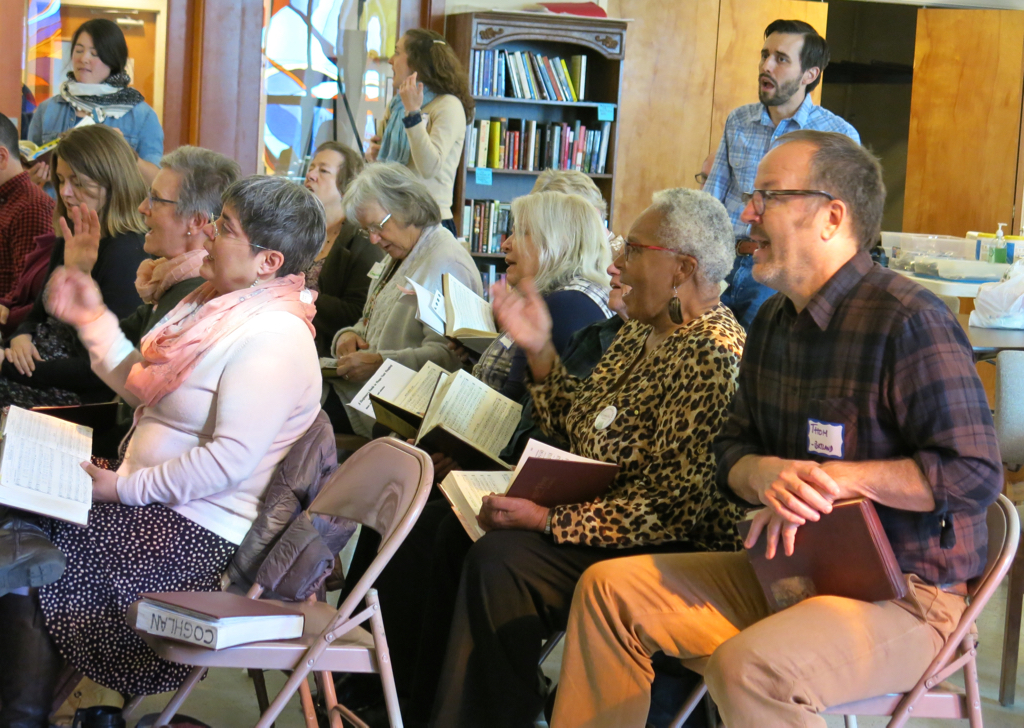You are unlikely to see people looking like this when they sing hymns at a Unitarian Universalist church:
I took this photo at today’s Sacred Harp singing in Davis, California. Everybody, even the people who are new to this kind of singing, are in full voice, not holding back, letting the song carry them away even if they disagree with the lyrics.
Unitarian Universalists, by contrast, tend to be of three types: Trained Singers, Overly-polite Singers, and Timid Singers. Many of the Trained Signers will be in the choir, and the rest of the congregation defers to them because they have at least some training. The Overly-polite Singers are the inheritors of Lowell Mason’s Better Music Movement, which swept both Unitarians and Universalists in the mid-nineteenth century: this movement expunged American composers and singing styles and replaced them European composers and bel canto singing. The Timid Singers, usually the majority of people at any given Unitarian Unviersalist worship service, having been cowed by the Trained Singers and the Overly-polite Singers, assume they can’t sing.
Sacred Harp singers don’t fit into any of these categories. Sacred Harp singing is an American tradition (there are both black and white versions, but they’re closely related) that does not sound like bel canto singing. Sacred Harp singers may get carried away with the music. Sacred Harp singers know that they should sing as well as they can for every song, even if they don’t like it, so that everyone else sings along on their favorites. Sacred Harp singing is a distinctly egalitarian tradition that says everyone can sing. And Sacred Harp singers let themselves be carried away with the music, as in the photo above.
(There might also be a fourth type of singer in some Unitarian Universalist congregations: the Popular-music Singer. These are the folks who sing along to various types of popular music. They may not read music, but once they hear a song they can generally sing it. They tend to be more egalitarian than the other three types of singer, and they tend to be more passionate singers. However, they are generally outnumbered by the Better Music Movement Singers.)
I wish more Unitarian Universalist congregations sang as if they were being carried away with the music. I wish we were less polite singers. But I suspect that music feels a little too uncontrolled, too irrational: we want to keep it carefully under control.
Below are some videos of faith communities that let their singing get ecstatic. Probably the majority of Unitarian Universalists will find these recordings unpleasant, and disturbingly passionate. Besides, we don’t want to look funny while we sing. That’s who we are; we don’t want to sing like our lives depended on it.
(Just to be clear, on some songs we sing like we mean it out in my own congregation in Palo Alto; we may not have quite the urgency of Sacred Harp singers in full cry, but we’re not too bad!)

